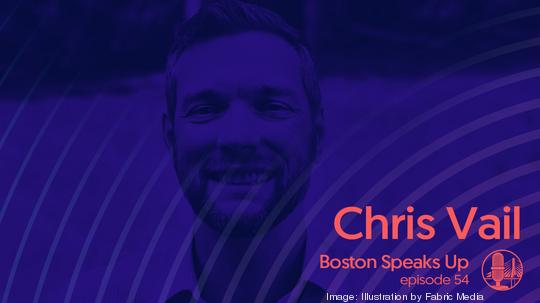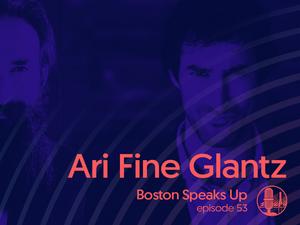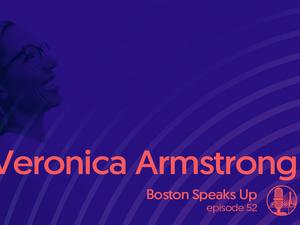
Boston Speaks Up is a multi-platform storytelling series from Fabric Media.
Chris Vail is a senior account executive for political and advocacy partnerships at Snapchat.
A former Amazon ad sales leader, Vail made the move to Snapchat to help onboard legislative, issue and nonprofit advertisers onto the Snapchat platform. His team recently launched an augmented reality lens for the Mark Kelly campaign in Arizona, which was the first Senate campaign to lean in on this new, experiential way of engaging voters. Snapchat has also made news waves recently for signing up more than 750,000 young voters via its Snapchat app (and now it’s crossed 1 million registered voters).
Prior to Snapchat, Vail headed up sales for Downstream, a fast-growing Amazon product marketing startup. He began his media career as a planner and buyer for a large D.C. political shop. In 2014, he migrated from politics to e-commerce, moved from D.C. to Seattle and landed at Amazon to help build out its (at the time) small digital ads team. He spearheaded the expansion of Amazon’s ad business into New York, Toronto and Boston, where he eventually moved with his family.
You can listen to our BSU podcast discussion via any of your favorite audio platforms: SoundCloud, Spotify, Apple Podcasts, Stitcher and Google Play.
Pre-podcast Q&A:
Where did you grow up?
Mostly in Florida, but had relatives in VA and spent a few years there when my dad had a job transfer. Suburb kid for the most part, so all these moves to big cities as an adult was eye-opening.
How would you describe your childhood?
I would say “extended.” I realized recently I didn’t really grow up until I had my own kids. I have always been close to my parents, but you have such a different perspective now that I have my own kids. It really does make you come around to the “how did my parents know what to do in this situation?” “Was I this difficult!?” I think you grow up thinking your parents have all the answers, then thinking they know nothing, and then when you have kids, you kinda go “oh...I get it now”
What’s the biggest lesson you learned from your parents?
I definitely get my work ethic from my parents. I take nothing for granted. I remember experiencing my parents being relatively “well off” at times, but also facing adversity and having less than ideal jobs, hours, etc to provide for the family. You don’t know when it can change or if it is in your control. It shapes you, and particularly now with the world kind of upside down, that perspective that you can have a lot going right, but it doesn’t take much to change that has helped me keep focused on what I can control, and honestly love everything I have.
How does living in New England compare to other places you’ve lived like Washington, D.C., Seattle and Florida?
So, physically after 4 years my body is still not used to the February cold of New England. Growing up in Florida, 40 is cold. Now I know the difference between 40 and -5. I did have to drive our youngest daughter home from the hospital during a sneaky fast blizzard when she was 4 days old, so I feel like I have earned my New England card though. I fell in love in different ways with both DC and Seattle. We lived in the ‘burbs in Northern Virginia, but it is such an overachieving, hustle crowd there, I constantly felt pushed to keep up. Seattle was the biggest change of pace, with so much more outdoor focus and while it’s technically not west “Coast” you definitely can tell that the culture is influenced by CA transplants who just take a much more relaxed focus than they do back east. My wife and I both loved Seattle, would probably still be there if it wasn’t for the opportunity to go back east closer to family.
What did you enjoy most about working in the Amazon advertising ecosystem?
When I came there in 2014, it was a big company, but it wasn’t AMAZON in the way it is now. The ads team was like a little start-up in a big company that still acted like a start up. I loved the pace, the leaders and the people, and the ability to kind of run your own business as so much was new, and greenfield. Being part of a massive expansion and building over the next 4-5 years became such an accelerated pace I didn’t realize until after I left just how far we had all come. I also realized that my motivation comes from the “building” part. Give me a general direction of where we want to go, and I like putting the pieces together to make it all work.
Downstream is a fast-growing startup. Why did you leave for Snap?
Probably the only thing that could have made me leave was the opportunity to go back into political media at Snapchat. It was the perfect storm of working with great people, and believing there was a huge opportunity to make a difference in the political advertising space.
What else drew you to Snap, Inc.?
Starting my career in politics and having it end more on other people’s terms than my own, I always wanted to circle back to it one day, either on my own as an indy consultant, or as part of some type of new media, disruptor, etc. Snap had pretty much all of those boxes checked. You have a super popular app with the generation that cares about HOW you do business, just as much as what business you do. So much of the Snap community is still forming their political beliefs, and that comes with great responsibility. I thought there was a huge opportunity to do political ads “the right way” as Snap manually fact checks ads, won’t accept ads from foreign nationals, and all ads and targeting live in a public library for complete transparency. I believe that type of position in terms of political ads is (and should be) the future for the digital space. The FCC has been pretty prescriptive about the spectrum, but digital still relies on self-regulation, I was really drawn to Snap’s position on that as a long term play.
What did you love most about your role in the political and advocacy group at Snap?
Outside of having a phenomenal team and working with some of the best people I have known, I think again it comes down to the greenfield opportunity. Snap has a team that was focused on the SuperPacs and the POTUS race, but we really didn’t have a team in place to build out the Congressional, state and local, and NPO business that just makes so much sense for them to partner with Snap. I took the gig with a multi-cycle plan in mind that focused on a listening tour of what political advertisers needed, and working with internal teams and campaigns to respond to that. When we launched the Mark Kelly AR lens, and now we have campaigns launching AR yard signs, etc, it just gives me the satisfaction that there is a market for something different, and I think our community responds well to the positive nature of the messaging.
What’s the biggest goal for your team leading up to the November 3 general?
I started way late, coming in right before lockdowns in April, so I have tried to build a foundation of educating shops and campaigns that didn’t have Snapchat on the plans from last year when they were building the strategy. We hosted a best practices webinar so shops could be introduced to the platform, the auction, etc. We realized so many really needed an intro to Snapchat just from a user perspective. Political campaigns are always wary about courting “younger” voters so I think we had to overcome that as well. Lots of misconceptions about the community or “where the ads are” etc. So I think if we can activate as many campaigns as we can fit and show them some success, that will be a huge win for us moving forward.
What has the pandemic taught you about business?
I was in a unique position because I had already been “remote” and managing a team for the last year, so that part really hasn’t changed much. I think the adjustment has been realizing that this is all new for so many people, so being empathetic to everyone’s situation. This is a time for trying to just be a good human first, and the business will adapt. Everyone has difficulties in one way or another. Snap has been beyond understanding, and I honestly can’t believe how much they have put their people first during this time. I think the companies that prioritize their employees are going to come out in much better shape whenever we go back to some sense of normalcy.
What single thing would you most like to see change about the world?
Only one?! I think right now I think of everything in terms of “what kind of world am I leaving my kids” and it always comes back to just we need more kindness. If we can just have a revolution of good humanity, there will be a lot less need for “defending my beliefs, intellect, or liberty” I think this goes for both sides of any issue. I know that probably sounds comical coming from a guy working in political media, but somewhere we lost the ability to just talk to each other about issues without it escalating into people shutting down and going to their corner. I think a hard reset and emphasis on being better humans regardless of our own biases and situations will go a long way in this regard.
###
You can follow BSU on Twitter at @BostonSpeaksUp, discover more inspiring stories at the Boston Speaks Up blog and recommend BSU guests by contacting bostonspeaksup@gmail.com.





